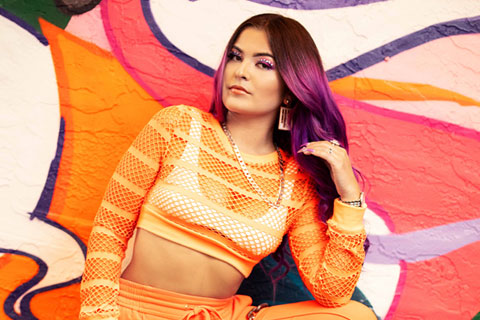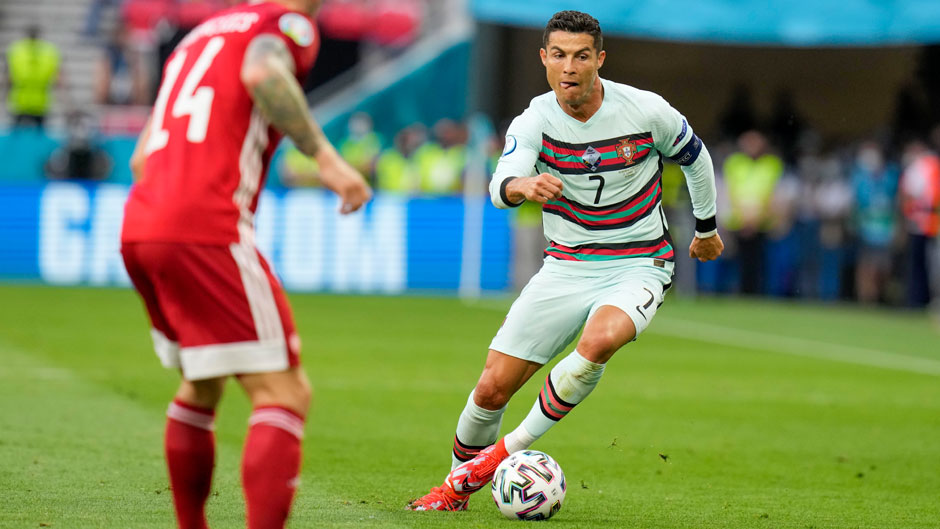One small gesture made by superstar soccer player Cristiano Ronaldo during a news conference coincidently aligned with a $4 billion drop in the stock market value of Coca-Cola last month.
On June 14 during a press conference, the Portugal footballer, who is known for his healthy lifestyle choices, decided to remove two bottles of the soft drink from the camera’s view in favor of a bottle of water. The subsequent market drop left many to question whether it was a mere coincidence or the power of celebrity influence.
Another example: Elon Musk and his waffling support of cryptocurrency led the value of bitcoin and dogecoin to fluctuate wildly because of his shared opinions on his social media accounts.
Do these instances prove the notion that celebrities and social media influencers have the power to impact the behavior of consumers?
Claudia Townsend, associate professor of marketing in the University of Miami Patti and Allan Herbert Business School, is an expert in marketing and consumer behaviors. In her marketing strategy course, she breaks down the different communication sources from the consumer’s point of view.
“There are sources that are really close to the brand and those that have a lot of information. But we don’t really trust them; because of course, they want us to think that whatever they’re advertising is great,” said Townsend. “And then there are the sources that are closer to you, but farther away from the product and who may have less expertise. However, we trust them more because they don’t have a vested interest.”
Townsend explained that this is the reason many people read and trust online reviews before making a purchase or why one would ask a friend for a movie suggestion.
Recently, a new source has been introduced into the equation—a social media influencer, or sometimes referred to as a digital marketer.
“These are people we may or may not know personally, who we are aware that they’re getting paid or that they got the product for free, yet we still trust them more than the brand itself because of two key components,” said Townsend.
There’s the aspirational component which consumers question themselves about who they are and who they want to be, and how this purchase will get them closer to that goal, she explained. “So, the fact that someone like Ronaldo says he doesn’t drink soda—people who aspire to be like him will make similar choices to get a little closer to being like him,” Townsend said.
The second component is the idea that the influencer is more like a friend, and they have accumulated a following based on something you find interesting, entertaining, humorous, etc. “They have something we want. So, maybe it’s that they make fit meals, and we love seeing them make them. Or maybe it’s because their sense of humor is self-deprecating, and there’s something about them that we want and we enjoy,” said Townsend.
Both Ronaldo and Musk are among the many celebrities who are major influencers in the billion-dollar industry. But there are plenty of micro-influencers who have a growing presence on social media and affect what their followers buy—and are making a living doing it.
Jasmine Ortiz is a senior at the University of Miami who studies musicianship, artistry development, and entrepreneurship at the Frost School of Music by day. By night she’s a producer, songwriter, and recording artist who has amassed nearly 240,000 followers on Instagram. Both her musical career and large social media following have made her the target of numerous small businesses to promote their products or services online.
 “I have worked with a couple small brands on the basis of trade,” said Ortiz, who is spending her summer in Los Angeles. “I will receive an item and post about it in return.”
“I have worked with a couple small brands on the basis of trade,” said Ortiz, who is spending her summer in Los Angeles. “I will receive an item and post about it in return.”
Unfortunately, the trades aren’t always that easy or worthwhile. Townsend said it is totally normal for influencers to turn a deal down because it either doesn’t fit their aesthetic or isn’t authentic to their personal brand.
“I have been reached out to by brands, but a lot of times they can have some sort of catch to them,” said Ortiz. “They’ll want you to purchase an x, y, z number of items and they will then offer you a discount code, and it doesn’t really end up being worth it.”
The pop singer often changes her hair color to match her bubbly, fun personality. This has opened the door for her to collaborate with several hairdressers.
“I have done a lot of local partnerships with hairstylists where I’m able to get my hair done and then promote their business in exchange,” said Ortiz, who tags the hair salon or hairstylists in her social media posts for her hundreds of thousands of followers to see.
Ortiz said the job of marketing yourself on social media is one that’s never ending.
“It’s a 24-hour, 7-days-a-week job,” exclaimed Ortiz. “I feel like I’ve never clocked out since I clocked in years ago.”

